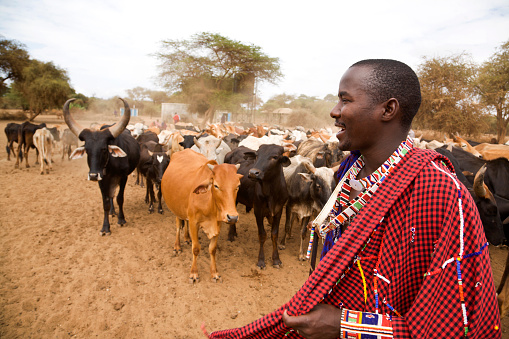NAIROBI, Kenya, Nov 16- Over the years, the outdated tradition of cattle rustling has metamorphosized into a business run by a syndicate of well-connected criminals, cashing in on an illegal practise at the detriment of farmers.
But a proposed law seeks to introduce a raft of measures, some drastic, to end the menace.
If the bill is passed by parliament and subsequently assented to law by President Uhuru Kenyatta, those found guilty of stealing livestock will face a death sentence upon conviction.
The Penal Code (Amendment) Bill 2020 is sponsored by Kitui East Member of Parliament Nimrod Mbai.
The bill seeks to eradicate the vice, that has persisted over the decades, through stringent punishment of those found culpable.
“A person who steals livestock commits an offence and shall be sentenced to death upon conviction,” reads the Bill.
It seeks to amend section 278 of the Penal Code Act, reads.
Currently, the law provides a jail sentence not exceeding 14 years for those found guilty of the offence.
The law defines animals in the category of livestock to include horse, mare, gelding, ass, mule, camel, ostrich, bull, cow, ox, ram ewe, goat, or pig.
In one 2017 incident in Laikipia County, about 10 000 pastoralists with automatic rifles made off with 135 000 head of cattle.
Cattle rustling has become a form of organised crime embedded in the wider business of cattle trade.
The vice, authorities say is no longer a cultural practice, but a form of organised crime committed by international criminal networks.
It is facilitated by the increasing proliferation of weapons, according to a study by ENACT transnational organised crime researchers at the Institute for Security Studies (ISS).
To curb the menace, Mbai wants the principal law amended to provide stiffer penalties for those convicted of stealing livestock products like milk, hides or skins, meat among others.
The Bill proposes 15 years in jail without the option of a fine, for those who steal livestock produce.
“A person who receives livestock or livestock produce, knowing or having reason to believe it to be stolen, commits an offence and shall upon conviction, be liable to imprisonment for a term of not less than 15 years,” the Bill says.
Cattle are an agricultural and cultural mainstay for millions of nomadic African pastoralists.
The impact of livestock theft on marginalised communities is severe since it deprives people of their livelihoods and increases poverty.
It’s often breadwinners who are injured or killed in raids, fuelling communal grievances and revenge attacks.
Cross-border criminal networks use advanced logistics and market information to continue their illicit activities.
Cattle rustling as a form of organised crime is embedded in the wider cattle trade business enabled by government corruption, with state officials turning a blind eye or collaborating with criminals.
Cattle rustlers also exploit weak cross-border coordination between governments in the region.
Cattle lords recruit and arm rural warriors to steal cattle for sale to abattoirs in towns or cross into neighbouring countries where they sell the cattle.
Stolen cattle are easy to traffic as they can be disguised as a legal commodity.
Want to send us a story? Contact Shahidi News Tel: +254115512797 (Mobile & WhatsApp)


